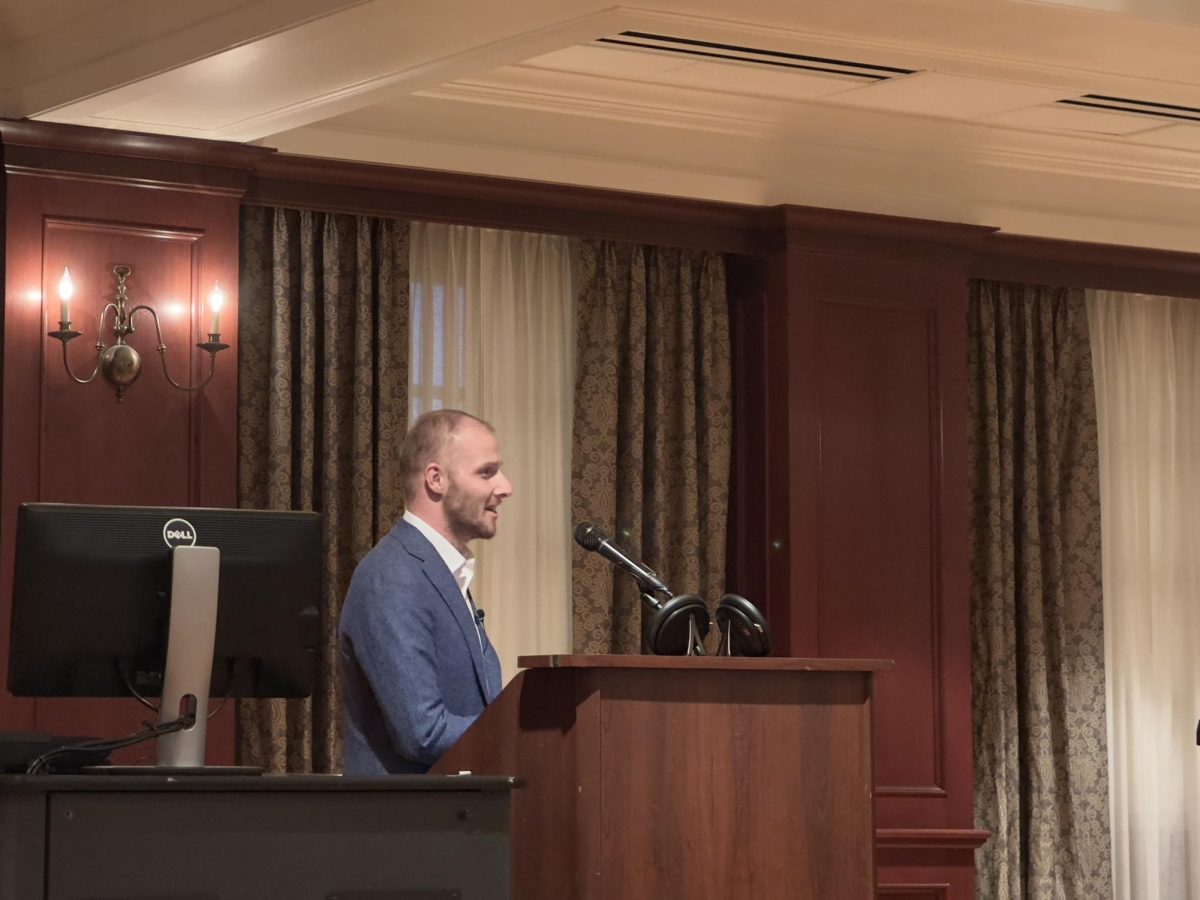Miami alumnus and polling expert Tyler Sinclair came to Miami University on April 16 to implore students to critically analyze election data, using examples to show what misleading election news looks like.
The 2013 graduate spent time with Morning Consult, a business intelligence company, before starting his own consulting firm, TGS Insights, from which he advises companies on market research.
In the lecture, he gave many examples of misleading, poorly-formed polls.
“As we’re going through the election and reading and ingesting so much information, it is not to follow that instinct to accept whatever our gut reaction is for something,” Sinclair said. “It’s important for how we understand and contextualize the result.”
Sinclair further described how polls, even when not intentionally misleading, can disrupt how we think about the reality of politics. He said that students should think critically about the data and notice when choices made by pollsters can affect the results
“There are inherent tradeoffs to every option for how you write a survey question and how you write it up,” Sinclair said. “There are infinite combinations and permutations of words that we can put together.”
He explained that specific word choices in polls about the legality of Plan B, the morning-after pill, can alter some people’s responses.
“The “Unsure” [answer] in the prior [survey] was displayed visually to respondents. Respondents in this survey didn’t have an option to register that they were unsure that they didn’t have an opinion,” Sinclair said. “A lot more folks were forced to select an opinion or select a side.”
He said students should analyze polling data to come to their own conclusions about the results.
The lecture was aimed at students who are still learning to critically analyze politics and election data, according to Brian Marshall, chair of the political science department.
Sinclair spoke as part of the department’s Darrell West Lecture in American Politics. According to Marshall, the series is aimed at ensuring students are informed about politics on their day-to-day.
“The design of the Darrell West lecture is to bring issues and policies in front of our students,” Marshall said. “[Students] are the next generation of leaders.”
Ethan Espasadin, a junior diplomacy and global politics student, said he enjoyed the non-partisan speaker who detailed polling processes.
“I enjoyed the variety of data sources that he used,” Espasadin said. “It made it very clear that he was not biased.”
The prospective Ohio voter was left wondering about the future of our political system, and whether the two-party system will remain.
“The only question I wanted to ask was whether or not the dissatisfaction in both parties as of late could actually lead to a multi-party system in the U.S,” Espasadin said.








